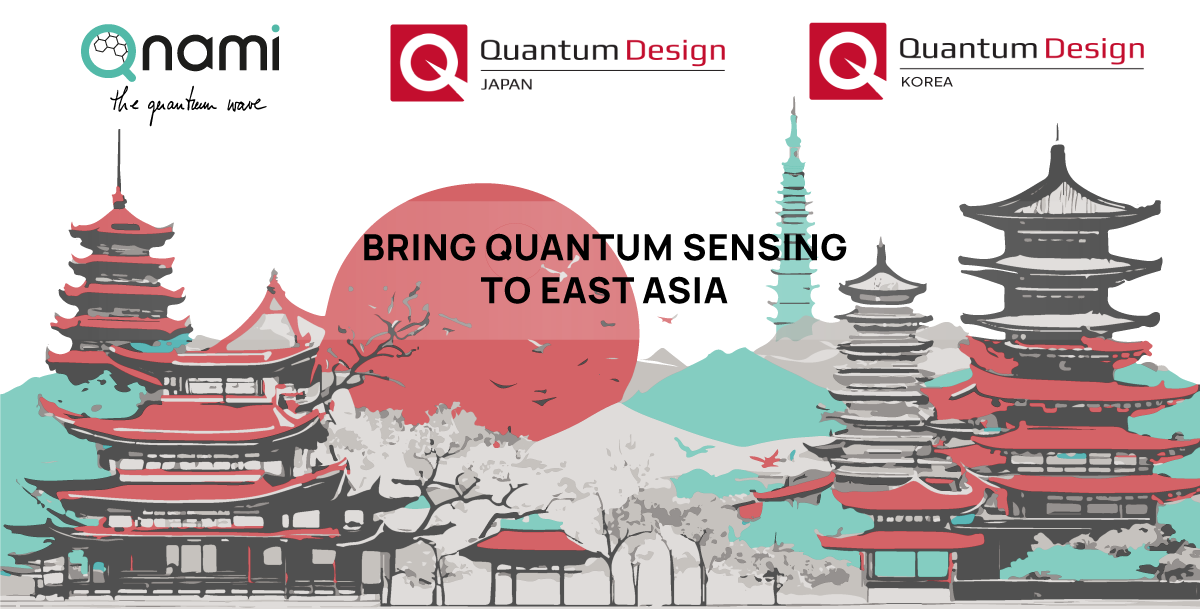Qnami announces the commercial partnership with Quantum Design Japan and Quantum Design Korea to bring its quantum platform for sensing applications to East Asia.

Image Credit: Qnami
Quantum sensing is the branch of quantum technology that is very much here and now. Since 2017, Qnami is the technology pioneer and leader in quantum sensing. We harness the quantum properties of Nitrogen Vacancy centres, which are atom-sized defects in ultra-pure diamonds, to function as sensors of for instance magnetic fields, electrical currents and temperature.
NV-based quantum sensors are already proving their worth in fields as varied as materials science, navigation, and life science. At Qnami, these sensors have been integrated into a nano-scale mapping microscope, ProteusQ™, where they are used amongst others to develop new materials for a more sustainable next generation of devices.
Launched in 2020, Qnami ProteusQ™, is the first commercial Scanning NV Magnetometer. This instrument, which uses Qnami’s patented Quantilever™ diamond scanning probes, is already up and running in 10+ universities and research centres in Europe and North America. Among the earliest adopter, also the CNRS-Thales laboratory of the Nobel laurate Albert Fert, the father of spintronics, the field of research transforming modern computing.
The unrivalled success of the Qnami ProteusQ in Europe and - thanks to our partner Quantum Design - in the USA, has led Qnami to sign an agreement with Quantum Design Japan and South Korea for exclusive local distribution rights of the ProteusQ. Addressing the vibrant and cutting-edge research communities in both South Korea and Japan is a natural extension for the Qnami sales & customer support team, and both partners are looking forward to enabling even further advanced spintronics and nanomagnetism research.
John MacArthur, Head of Quantum Design Japan sees this as a natural synergy - 'we have many years’ experience in providing and supporting instrumentation for nanoscale characterization and sensitive magnetic measurements, and the ProteusQ addresses questions that our valued customers are already asking. We are very excited by the new scientific possibilities that this agreement will permit, he said
‘The success of the Qnami/Quantum Design partnership in the US has laid the groundwork for this agreement. At Qnami, we have been impressed by the knowledgeable and science-first approach of our partners and are looking forward to replicating this success in the Orient. It was always a priority for us to bring our turnkey, open-design Scanning NV magnetometer ProteusQ to Japan and Korea, and the initial response of the scientific community has been very receptive’ said Benjamin Holmes Quantum Sales Manager for the Far East at Qnami.